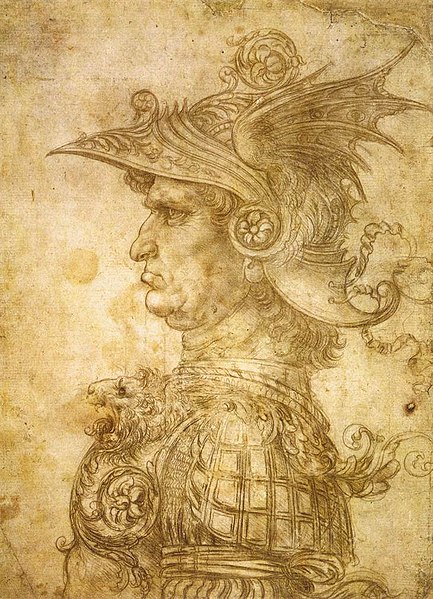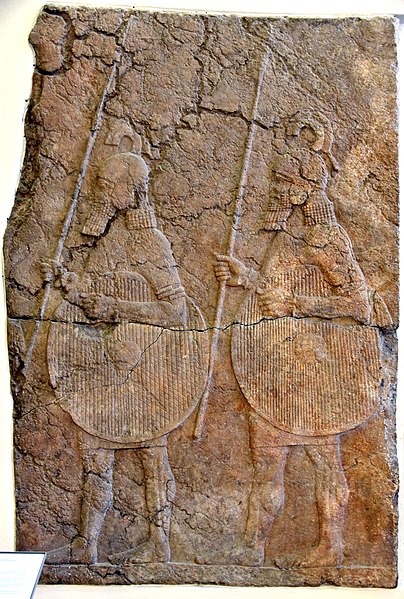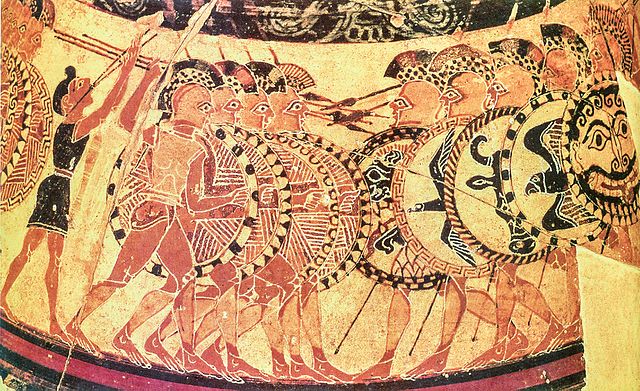Condottieri were Italian captains in command of mercenary companies during the Middle Ages and of multinational armies during the early modern period. They notably served popes and other European monarchs during the Italian Wars of the Renaissance and the European Wars of Religion. Notable condottieri include Prospero Colonna, Giovanni dalle Bande Nere, Cesare Borgia, the Marquis of Pescara, Andrea Doria, and the Duke of Parma.
The equestrian statue of Bartolomeo Colleoni in Venice, Italy
Luchino Visconti defeated the Company of Saint George of Werner von Urslingen at the Battle of Parabiago in Lombardy in 1339.
Alberico da Barbiano, a mercenary alongside John Hawkwood, founded his own (all Italian) condotta, the Company of St. George, and reached acclaim by defeating the Breton company of anti-pope Clement VII at Marino [fr] in 1379 as well as fostering notable other condottiere such as Facino Cane and Braccio da Montone.
Detail of the frescoes, with soldiers
A mercenary, also called a merc, soldier of fortune, or hired gun, is a private individual who joins an armed conflict for personal profit, is otherwise an outsider to the conflict, and is not a member of any other official military. Mercenaries fight for money or other forms of payment rather than for political interests.
Leonardo da Vinci's Profilo di capitano antico, also known as il Condottiero, 1480. Condottiero meant "leader of mercenaries" in Italy during the Late Middle Ages and the Renaissance.
Private military contractor in Badakhshan Province, Afghanistan, 2006
Alabaster-bas relief, non-Assyrian mercenaries in the Assyrian army. From the South-West Palace, Nineveh. 7th century BC
Chigi vase with Hoplites holding javelins and spears








